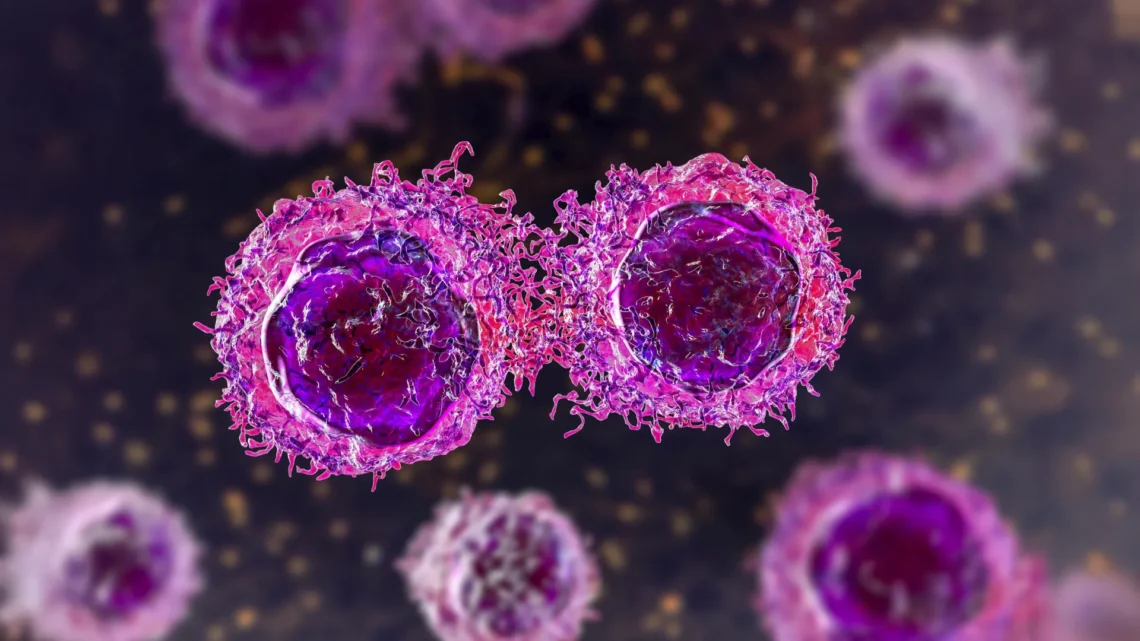Significant Discovery in Pancreatic Cancer Research
Researchers funded by Cancer Research UK have identified dementia-like behavior in pancreatic cells predisposed to malignancy. These discoveries may provide valuable insights for the prevention and treatment of pancreatic cancer, a challenging condition associated with approximately 6,900 deaths annually in the UK.
Research Overview
This study was published on August 15 in the journal Developmental Cell. The research received funding from Cancer Research UK, supported by Wellcome, the Medical Research Council, and the Biotechnology and Biological Sciences Research Council.
Methodology and Findings
Scientists at the Cancer Research UK Scotland Centre observed the transformation of healthy pancreatic cells into cancerous cells over time in murine models. They discovered that pre-cancerous cells demonstrated abnormalities in a cellular recycling system known as “autophagy.” This disruption led to the accumulation of malfunctioning protein molecules, a phenomenon reminiscent of behaviors seen in neurological disorders such as dementia. Additionally, similar protein clumping was observed in human pancreatic samples, indicating a potential parallel in the progression of pancreatic cancer.
Implications of Autophagy Disruption
Professor Simon Wilkinson, a Senior Fellow at the Institute of Genetics and Cancer at the University of Edinburgh, stated: “Our research highlights the potential role of autophagy disruption in the initial stages of pancreatic cancer. Although this area of study is still in its early stages, insights from other diseases characterized by protein clumping, like dementia, may enhance our understanding of this aggressive cancer and contribute to preventive strategies.”
Despite advancements in survival rates for various cancer types, pancreatic cancer remains one of the most challenging due to late-stage diagnoses, which often limit treatment options. Researchers aim to further investigate the factors contributing to the transformation of pancreatic cells into cancerous ones.
Genetic Factors and Autophagy in Cancer
Multiple cancer types, including pancreatic cancer, have been correlated with mutations in the KRAS gene. However, recent studies reveal that genetic alterations alone do not account for the development of the disease.
Cells typically maintain health by eliminating excess and unnecessary molecules through autophagy, a crucial process in the pancreas for regulating digestive enzymes and hormones. Research has shown that cancer cells may exploit this recycling mechanism, becoming “addicted” to autophagy to facilitate rapid growth.
This study posits that the interplay between malfunctioning KRAS genes and disrupted autophagy may catalyze pancreatic cancer development. The research team intends to explore these mechanisms further to identify potential predictive markers or even reversals for early-stage pancreatic cancer, considering additional variables such as age, sex, and dietary influences.
Clinical Significance and Future Directions
According to Dr. Iain Foulkes, Executive Director of Research and Innovation at Cancer Research UK: “Around 10,500 individuals are diagnosed with pancreatic cancer in the UK each year, with many cases being identified at a point when treatment options are severely limited. While further investigations are warranted, these findings could yield crucial insights into pancreatic cancer’s development.”
Research into pancreatic cancer is a top priority for Cancer Research UK, which supports inquiries into the disease’s causes, diagnostic tests, and clinical trials aimed at improving treatment efficacy, minimizing side effects, and enhancing symptom management.
The full article titled “ER-phagy and proteostasis defects prime pancreatic epithelial state changes in KRAS-mediated oncogenesis” can be found in the August 15 edition of Developmental Cell.
Key Health Takeaway
The findings from this study highlight the significance of autophagy disruption and genetic mutations in the early development of pancreatic cancer. Continued research in this area may lead to improved diagnostic methods and treatment strategies, ultimately enhancing survival outcomes for patients affected by this formidable disease.
Notes
*Pancreatic cancer statistics. Cancer Research UK. https://www.cancerresearchuk.org/health-professional/cancer-statistics/statistics-by-cancer-type/pancreatic-cancer. Accessed July 2025.
**Research into pancreatic cancer. Cancer Research UK. https://www.cancerresearchuk.org/about-cancer/pancreatic-cancer/research-clinical-trials/pancreatic-cancer. Accessed July 2025.
***Pimentel et al. Autophagy and cancer therapy. Cancer Letter. 2024. doi: 10.1016/j.canlet.2024.217285.





